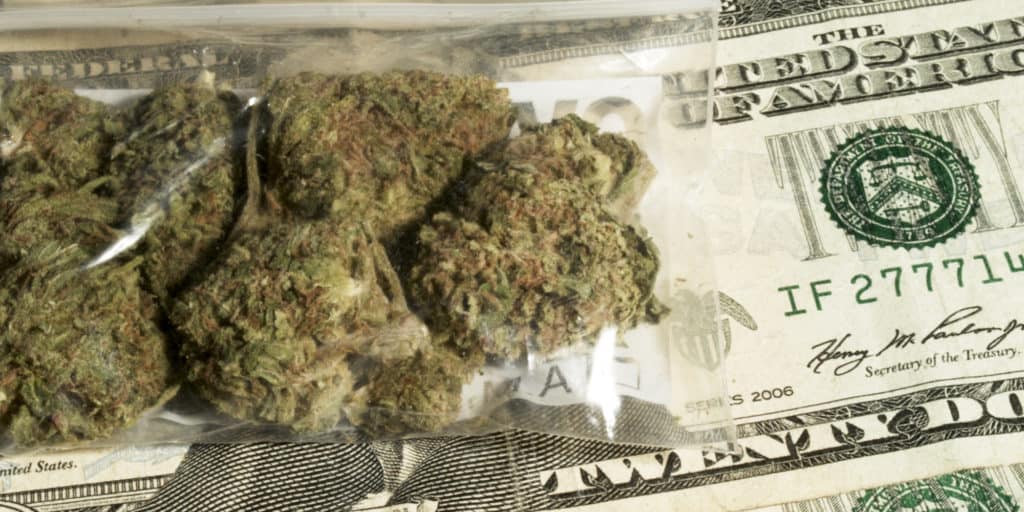
By Dan Murphy
Opposition to the announcement last month by Gov. Andrew Cuomo that he will propose as part of his state budget plan the legalization of recreation marijuana sales in New York is being met with opposition in some Westchester communities. That opposition comes as Assembly Speaker Carl Heastie suggested the issue of legalizing pot in New York may not be completed by the March 31 budget deadline.
The Village of Pleasantville and the Towns of New Castle, Yorktown and Somers are all pursuing legislation that would ban the opening of marijuana stores when and if pot becomes legal in New York State. The problem for these communities is that they will not be able to completely ban the sale of pot if it becomes legal in the Empire State; only large cities and counties can opt-out of legalizing marijuana sales.
So if Pleasantville, New Castle, Yorktown and Somers want to opt-out, all of Westchester County must opt-out. County Executive George Latimer said the county would study the issue if and when pot becomes legal by officials in Albany.
What Westchester towns and villages can do is to regulate, or restrict, where marijuana sales can operate in their communities. Pleasantville is debating where in its small village marijuana retail stores can be placed out of the walking routes of children and parents, and away from schools and parks.
New Castle will review its existing vape shop law to see if it can be amended to include marijuana sales. The current vape law restricts sales to locations at least 2,000 feet from a school and 500 feet from a park, library or church.
Law enforcement has also begun to come out against recreational marijuana use and legalization, including from the New York State Police Chiefs.
“The New England Journal of Medicine reports, ‘The epidemiological and preclinical data suggests that the use of marijuana in adolescence could influence multiple addictive behaviors in adulthood,’” wrote Chief John Aresta, president of the New York State Association of Chiefs of Police. “New York State is currently battling an opioid epidemic with law enforcement and public health professionals on the frontline and it would be counterintuitive to condone the use of marijuana.
“Aside from the numerous health related issues with the use of marijuana, we are concerned with how the legalization will impact public safety. Of great concern is traffic safety. New York has been making great strides in lowering traffic fatalities to the lowest numbers on record. In comparing data in Colorado (which legalized marijuana in 2013), the first year that marijuana was legalized, traffic fatalities increased 62 percent in that one year.
“It is anticipated that law enforcement would have to add approximately 650 new drug recognition experts to handle the necessity of the increase in suspected impaired drivers. In addition to the need for new DREs, legalizing regulated marijuana would necessitate retiring a large majority of police K-9 dogs that are trained to detect marijuana, as their detection capabilities would no longer be admissible in court. The replacement of these K-9 officers could easily take five to seven years and cost hundreds of thousands of dollars.”
The Westchester County Chiefs of Police also oppose legalizing pot. Mount Olive Police Chief Paul Oliva, association president, said: “Traffic deaths will increase as a result of impairment from marijuana. Years ago, I think people thought they might be able to drive under the influence of marijuana because it wasn’t as powerful. But now, with the high levels of THC, we’re seeing the impairment factor is a lot higher. And currently there is no roadside test to determine how high someone is on marijuana.”
Additional opposition has come from groups concerned that tobacco and alcohol companies are investing large sums in the pot industry, including Marlboro cigarette-maker Altria, which has invested $1.8 billion in a leading Canadian cannabis firm; and Anheuser-Busch has invested $50 million in creating marijuana drinks.
Locally, Ardsley attorney and founder of the Harris Project, Stephanie Marquesano, said she wants the entire process of legalizing pot slowed down. Her son, Harris, used marijuana before moving onto prescription pills. “New Yorkers would benefit from a thorough examination of the states that have legalized marijuana for recreational use and carefully weigh the true impact,” she said.
Cuomo’s legalization plan would mandate licensing for growers and sellers, and tax pot at 20 percent, with 2 percent going to local communities, and would prohibit the sale of marijuana to those younger than 21. Recently the governor remained confident that his pot plan would become law by April 1, saying: “I’m not willing to accept deferral, and I’m going try like heck to get it done in the budget. But we’re going to get it done one way or the other.
“The fact is we have had two criminal justice systems: one for the wealthy and the well off, and one for everyone else,” continued Cuomo. “Let’s legalize the adult use of recreational marijuana once and for all.”
Estimates have NYS collecting $300 million annually in pot-taxed sales. Ten other states have legalized recreational marijuana. Even if the State Legislature and the governor approve legalizing pot by April 1, it would not become legal until April 1, 2020. “States around the country are demonstrating that regulating marijuana works,” said Mason Tvert, a Marijuana Policy Project spokesman. “It allows folks to purchase marijuana safely, legally and from licensed, taxed businesses, rather than on the illegal market.”
Westchester District Attorney Anthony Scarpino’s office is no longer prosecuting low-level marijuana cases of less than 25 grams. A recent Sienna College poll found 56 percent of New Yorkers supporting legalization, with 58 percent from New York City in support. In the suburbs like Westchester, support is 51 percent for and 43 percent opposed.
Last year, the NYS Department of Health issued a report that concluded that the benefits of taxing and regulating the drug outweighed any negative effects, and that marijuana criminalization “has not curbed marijuana use despite the commitment of significant law enforcement resources.”
The report also found that legalization would let the state “better control licensing, ensure quality control and consumer protection, and set age and quantity restrictions,” as well as provide hundreds of millions in tax revenue to the state every year.
In Somers, a March 7 public hearing has been set to consider a local law to ban the sale of Marijuana, based on Town Supervisor Rick Morrissey, who said, “In my mind, marijuana is a gateway drug.”
Whether that law, if ever approved, can stand up in the courts is being debated by supporters and opponents of legalization.





